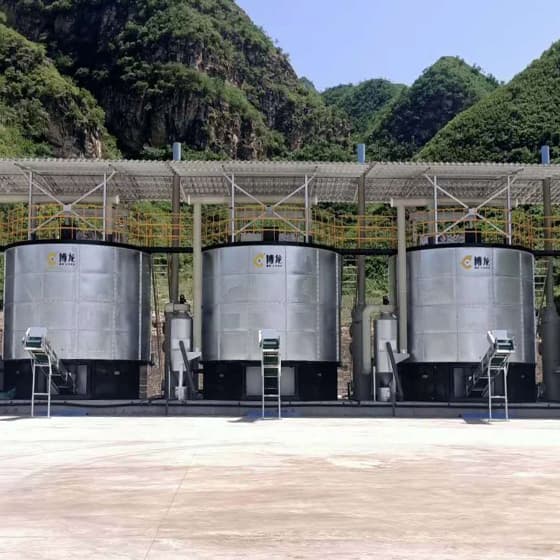Introduction
In recent years, fermentation tank technology has emerged as a leading innovation in organic waste management. These advanced systems offer a sustainable solution for converting organic waste into valuable compost, helping to address environmental challenges and promote a circular economy. This article explores the role of fermentation tank technology in driving innovation in organic waste management and its potential to transform the way we handle waste.


Smart Sensor Integration
One of the key innovations driving fermentation tank technology is the integration of smart sensors and monitoring systems. Modern fermentation tanks are equipped with a range of sensors that continuously monitor crucial parameters such as temperature, moisture levels, pH, and oxygen concentration.
These sensors provide real-time data on the fermentation process, allowing operators to optimize conditions for microbial activity and composting efficiency. Advanced monitoring systems can alert operators to deviations from optimal conditions, enabling timely interventions to prevent issues such as overheating or oxygen depletion.
Automated Control Systems
In addition to smart sensors, fermentation tanks often feature automated control systems that regulate various aspects of the composting process. These systems use algorithms and feedback loops to adjust parameters such as aeration, temperature, and moisture levels based on sensor data and predefined setpoints.
Automated control systems enable precise control over fermentation conditions, ensuring optimal composting efficiency and product quality. By reducing the need for manual intervention, these systems improve operational efficiency and minimize the risk of human error.
Data Analytics and Optimization
Advancements in data analytics and optimization algorithms are also driving innovation in fermentation tank technology. By analyzing large volumes of sensor data, machine learning algorithms can identify patterns, trends, and correlations that help optimize the composting process.
Machine learning models can predict fermentation outcomes, recommend process adjustments, and identify opportunities for efficiency improvements. These insights empower operators to make data-driven decisions, optimize resource utilization, and maximize composting efficiency.
Integration with Renewable Energy
Another trend in fermentation tank technology is the integration with renewable energy sources such as solar power and biogas. Many fermentation tanks now feature solar panels or biogas generators that produce clean energy to power the fermentation process.
By harnessing renewable energy, fermentation tanks reduce reliance on fossil fuels, lower greenhouse gas emissions, and enhance sustainability. Solar-powered fermentation tanks, in particular, offer a decentralized and environmentally friendly solution for organic waste management in remote or off-grid locations.
Conclusion
Fermentation tank technology is driving innovation in organic waste management by leveraging smart sensors, automated control systems, data analytics, and renewable energy integration. These advancements enable precise control over the composting process, optimize resource utilization, and minimize environmental impact. As fermentation tank technology continues to evolve, it holds the potential to revolutionize organic waste management and accelerate the transition to a circular economy.